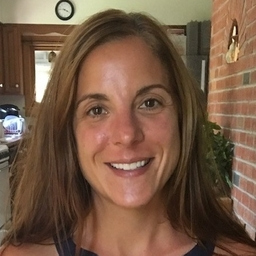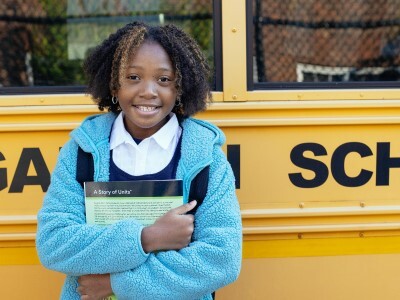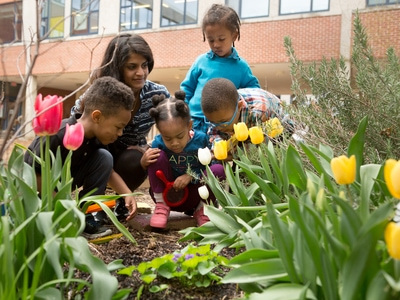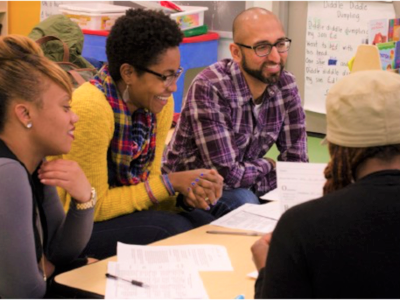Crowdsourcing Learning in K-12
Topics
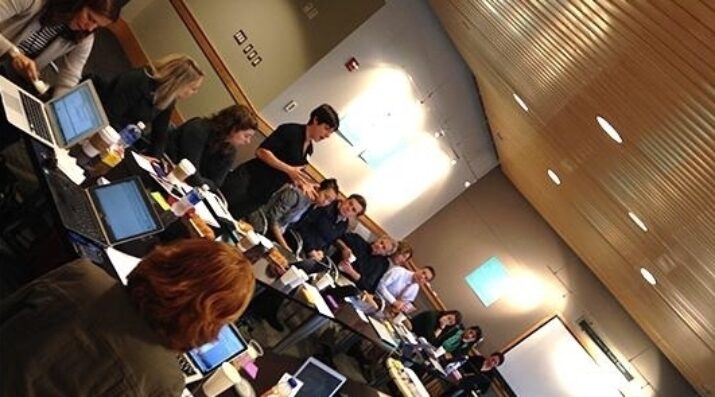
When educators design and create new schools, and live next gen learning themselves, they take the lead in growing next gen learning across the nation. Other educators don’t simply follow and adopt; next gen learning depends on personal and community agency—the will to own the change, fueled by the desire to learn from and with others. Networks and policy play important roles in enabling grassroots approaches to change.
Consultancy participants get an insider’s view and offer invaluable advice
At last week’s consultancy in New England, NGLC convened 60 educators from across the country, who discussed critical topics in K-12 education and worked to answer big questions from two innovative Maine high schools.
Autumn is a magical time in New England: the atmosphere is changing, and in the midst of it, schools are entering a rhythm that will influence the rest of the academic year.
Walking down the streets of downtown Portland, Maine, last week, members of our team took in a busy seaport, with its many restaurants teeming with lobster rolls and locally sourced foods, and a combination of eclectic retail stores and touristy gift shops. Also included in this visit were two inspiring local venues that hosted our meetings: the Mayo Street Arts Center and the Gulf of Maine Research Institute.
The trip’s focal point involves site visits to two local schools: Portland’s Casco Bay High School and Poland Regional High School in nearby Poland. Sixty educators from the NGLC’s national network of K-12 breakthrough models schools and leaders from the six Regional Funds partnerships joined us. One such partnership, the Great Schools Partnership’s New England Secondary School Consortium, hosted the visits to give us an insider’s view.
Getting inside a school gives you a wholly different perspective on a place.
You meet teachers, principals, and students. You uncover specifics; for us, this meant becoming acquainted with Maine’s new proficiency graduation requirements. You get a chance to discuss their unique challenges and priorities. And you learn about the hopes and dreams of these local educators and students who are preparing for their future.
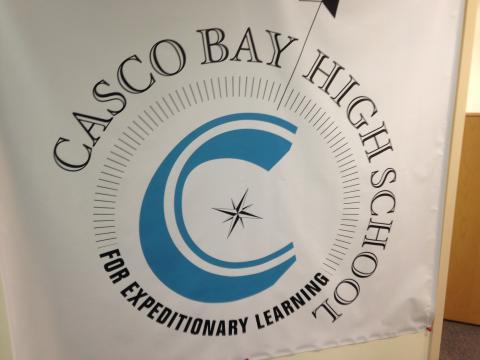
Our goal for this visit to Portland was to learn. Our commitment was to learn through a collaborative community: to learn from, and with, and for each other.
Setting the Stage
In the Arts Center’s theater space, we began our visit by examining the context of the city of Portland, the state of Maine, and the New England region. GSP/NESSC provided an overview of their efforts to support the transformation of learning across five states—and representatives from those states shared information about the policy environment across the region. This set the stage for more informed site visits and collective learning.
Crowdsourcing Perspectives
Leaders from each school led tours through their classrooms to offer a sense of the environment and allow us to observe learning in action. Panels of teachers, administrators, and students provided answered to our burning questions. Naturally, arranging such a visit is a lot to ask of a school during the academic year, and we were grateful to be welcomed and supported by so many people at Casco Bay and Poland Regional.
To give back to the schools that opened their doors to us, we organized the site visits as consultancies—as a means of crowdsourcing expertise and perspectives toward solving a specific academic challenge. Visitors, school leaders, and teachers together explored an issue facing the school. Then the 60 educators present shared their expertise with the school to give them different perspectives on the issue, new ideas to consider, and resources and examples to model. We’re optimistic that each school was able to benefit from this aspect of our visit.
Essential questions for each consultancy:
- Casco Bay High School: How do we increase rigor, engagement, and the depth of student thinking and ownership in daily lessons through the consistent, strategic use of instructional practices that promote deeper learning and the achievement of common core standards for our full range of learners?
- Poland Regional High School: What new learning can we gain from educators in other states regarding best practices which help all students—learning disabled and not—meet all standards and earn a proficiency-based diploma, given Maine’s new proficiency-based diploma law?
Making Learning Visible
We took the same tack in the Regional partners’ convening sessions, using the consultancy process to pose the most significant design challenges of each partner and lean on the expertise in the room to help solve them.
What made this work particularly well was that the partners at the table were willing to roll up their sleeves and work together.
- Each knew they had expertise to share, but didn’t pretend they knew all the answers.
- Partners recognized the unique approach of each region based on the educational landscape within that region, yet they easily identified points of convergence and opportunities to support each other.
- They focused on a common goal: to create stronger systems that improve learning outcomes for students.
"It's about rigor with purpose and rigor with joy. We are working to create a culture of continuous improvement here."
–Derek Pierce, Principal, Casco Bay High School
Driving home from Portland, I reflected on a few key takeaways that may be helpful to you:
- It’s all about ongoing learning. Education is about learning. And convening educators is about bringing together the best minds to solve our most pressing problems.
- At its core, defining success has got to be about the kids. The future of Portland and New England lies in the hands of today’s students who will go on to shape the regional (and perhaps national) economy. We have to serve them well.
Hearing students’ sincere observations on their experiences reinforced the importance of this work—and the approach educators are taking:
- “Get your heart into what you are doing. With learning at our school around these expeditions, you understand things at such a deep level that you care deeply.”
- “I learn more when I am pushed. I work harder. I persevere.”
- “I’ve learned that I procrastinate a lot and have to really work to get things done. I realize I need to push myself.”
- “The most important part of school for me is the culture we have here…I feel respected and I learn about everyone’s talents during school meeting.”
Their words remind me what next gen learning is all about.

